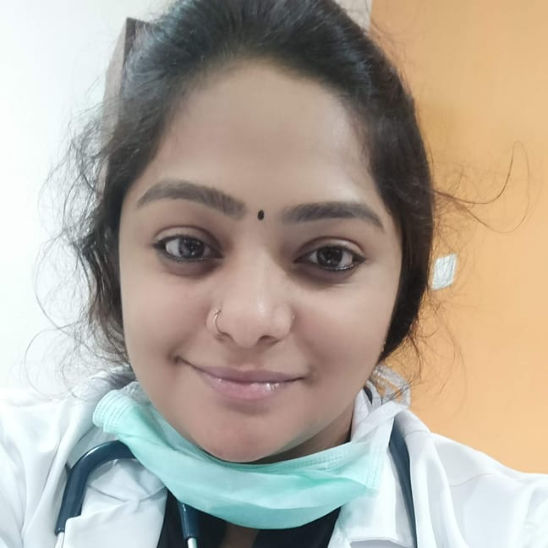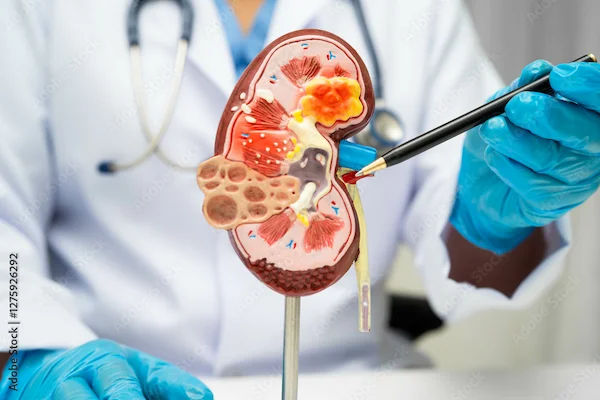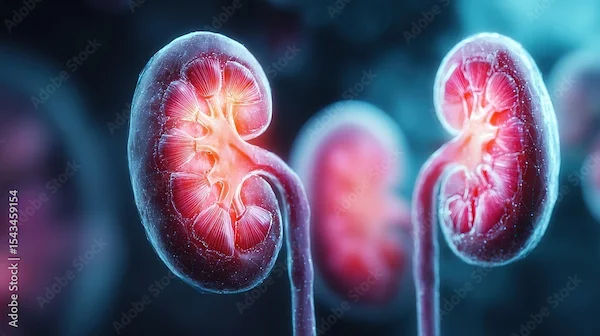Kidney Disease: Overview of Symptoms and Treatment
Kidney disease often develops silently but can lead to serious complications if untreated. Learn about its causes, symptoms, diagnosis, and treatment options to protect your kidney health.

Written by Dr. Siri Nallapu
Reviewed by Dr. Rohinipriyanka Pondugula MBBS
Last updated on 25th Aug, 2025
.webp?tr=q-80,f-webp,w-350,dpr-2,c-at_max 700w)
Kidneys play a vital role in keeping our bodies healthy by filtering waste, balancing fluids, and regulating blood pressure. However, when kidney function declines, it can lead to chronic kidney disease (CKD) or even kidney failure. Understanding the symptoms, causes, and treatment options can help you take better care of your kidney health.
What is Kidney Disease?
Kidney disease occurs when the kidneys are damaged and can no longer filter blood effectively. This leads to a buildup of waste and excess fluid in the body. If left untreated, kidney disease can progress to end-stage renal disease (ESRD), requiring dialysis or a kidney transplant.
Common Causes of Kidney Disease
- Diabetes (leading cause)
- High blood pressure (hypertension)
- Glomerulonephritis (inflammation of kidney filters)
- Polycystic kidney disease (genetic disorder)
- Recurrent kidney infections
- Long-term use of painkillers (NSAIDs)
Symptoms of Kidney Disease
Early-stage kidney disease often has no noticeable symptoms, which is why it’s called a "silent disease." As the condition worsens, symptoms may include:
- Fatigue and weakness (due to anemia)
- Swelling in legs, ankles, or feet (edema)
- Foamy or bubbly urine (protein leakage)
- Frequent urination, especially at night
- Dry, itchy skin (due to mineral imbalance)
- Nausea, vomiting, or loss of appetite
- Muscle cramps or twitching
- Shortness of breath (fluid buildup in lungs)
If you experience these symptoms, consult a doctor for proper evaluation.
How is Kidney Disease Diagnosed?
Doctors use blood tests, urine tests, and imaging to check kidney function:
1. Blood Test (Serum Creatinine & GFR) – Measures waste levels and filtration rate.
2. Urine Test (Albumin-to-Creatinine Ratio) – Checks for protein leakage.
3. Ultrasound or CT Scan – Detects structural abnormalities.
Early detection can slow disease progression and prevent complications.
Get Your Symptoms Checked now.
Treatment Options for Kidney Disease
Treatment depends on the stage of kidney disease and underlying cause.
1. Lifestyle Changes & Medications
- Control blood sugar & blood pressure (Key for diabetics & hypertensives).
- Reduce salt & protein intake (Eases kidney workload).
- Stay hydrated (Helps flush toxins).
- Avoid NSAIDs (e.g., ibuprofen) (Can worsen kidney damage).
- Medications (ACE inhibitors, diuretics, or phosphate binders).
2. Dialysis
If kidneys fail, dialysis (artificial blood filtering) is needed. Two types:
- Hemodialysis (Machine filters blood, done at a clinic).
- Peritoneal Dialysis (Uses abdominal lining, done at home).
3. Kidney Transplant
A healthy kidney from a donor can replace failed kidneys. This is the best long-term solution but requires lifelong medication to prevent rejection.
Consult Top General Practitioner
How to Keep Your Kidneys Healthy?
Prevention is always better than cure. Follow these tips:
- Stay hydrated (Drink enough water daily).
- Eat a balanced diet (Low salt, less processed food).
- Exercise regularly (Helps control blood pressure & weight).
- Avoid smoking & excessive alcohol.
- Get regular check-ups (Especially if diabetic/hypertensive).
When to See a Doctor?
If you have:
- High blood pressure or diabetes
- Family history of kidney disease
- Persistent swelling or fatigue
- Changes in urination patterns
Early intervention can save your kidneys and improve quality of life.
Need Help? Consult a Kidney Specialist Today!
If you suspect kidney issues or need a check-up, Apollo24|7 offers expert consultations and diagnostic tests. Book an appointment now to take control of your kidney health.
Consult Top General Practitioner
Consult Top General Practitioner
Dr. Gaddam Manoj
General Practitioner
1 Years • MBBS
Hyderabad
Aaradhya clinic, Hyderabad

Dr Suseela
General Physician
5 Years • MBBS
Bengaluru
Apollo Medical Center, Marathahalli, Bengaluru

Dr Syed Mateen Pasha
General Physician
2 Years • MBBS
Bengaluru
PRESTIGE SHANTHINIKETAN - SOCIETY CLINIC, Bengaluru

Dr. Sudhashree R
General Physician/ Internal Medicine Specialist
13 Years • MBBS, MRCEM
Bengaluru
Apollo Clinic, JP nagar, Bengaluru

Dr Darshana R
General Physician/ Internal Medicine Specialist
15 Years • MBBS, MD, DNB (Internal Medicine), Diploma in Allergy, Asthma and Immunology , Fellowship in Diabetes
Bengaluru
Apollo Clinic, JP nagar, Bengaluru
(100+ Patients)
Consult Top General Practitioner
Dr. Gaddam Manoj
General Practitioner
1 Years • MBBS
Hyderabad
Aaradhya clinic, Hyderabad

Dr Suseela
General Physician
5 Years • MBBS
Bengaluru
Apollo Medical Center, Marathahalli, Bengaluru

Dr Syed Mateen Pasha
General Physician
2 Years • MBBS
Bengaluru
PRESTIGE SHANTHINIKETAN - SOCIETY CLINIC, Bengaluru

Dr. Sudhashree R
General Physician/ Internal Medicine Specialist
13 Years • MBBS, MRCEM
Bengaluru
Apollo Clinic, JP nagar, Bengaluru

Dr Darshana R
General Physician/ Internal Medicine Specialist
15 Years • MBBS, MD, DNB (Internal Medicine), Diploma in Allergy, Asthma and Immunology , Fellowship in Diabetes
Bengaluru
Apollo Clinic, JP nagar, Bengaluru
(100+ Patients)

_13.webp)

_10.webp)

